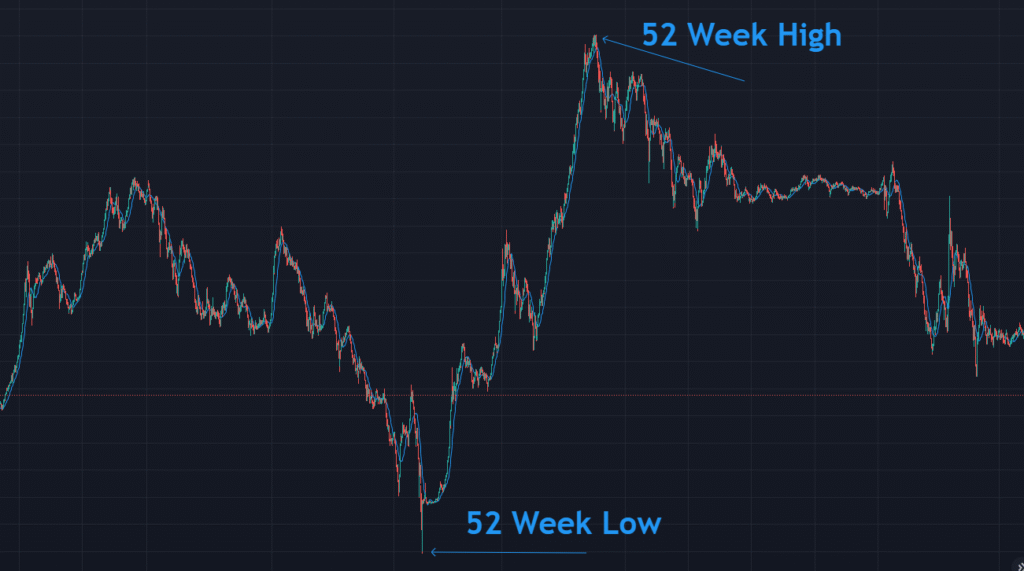Making money in the stock market is not about luck. It is about strategies, timing, and understanding risk. People who succeed follow a process. They do not chase quick wins or rumors.
What Drives Profit in the Stock Market
Stock market profits come from two main sources:
- capital gains
- dividends.
Capital gains occur when you sell a stock for more than you paid. Dividends are payments companies make to shareholders from their profits.
Both these sources add to your income. Long-term capital gains are taxed at lower rates in many countries. This gives patient investors a financial edge. Holding good stocks over time helps build steady returns.
Below are some strategies you can follow to make money on stock market:
Buy Quality Companies, Not Just Cheap Stocks
A $10 stock is not always a bargain. The price of a stock does not tell you how valuable it is. What matters is the company’s ability to grow profits over time. Investors make money when the companies they own grow stronger and earn more.
Look for companies with strong cash flow, low debt, and a history of rising earnings. These traits often lead to rising share prices. You don’t need to own many stocks to succeed. A few great businesses are better than dozens of average ones.
Time in the Market Beats Timing the Market
Over 80% of day traders lose money. Yet, many still try to time every market move. Studies show that long-term investors outperform short-term traders. The longer you stay invested with the company you have chosen wisely, the more your returns compound.
The Power of Compounding Returns
If you invest $10,000 and earn 10% a year, you have $25,937 in ten years. Leave it another ten years and you have $67,275. This is compounding. It is how most millionaires build their wealth.
Reinvesting dividends and profits increases your future returns. Many investors make money not by big wins but by staying in the game. They let compounding do the heavy lifting.
Use Index Funds for Reliable Gains
Index funds track entire markets. They have lower fees and reduce risk through diversification. Over time, most active fund managers fail to beat the index. In fact, more than 80% underperform after costs.
Buying a low-cost index fund is one of the easiest ways to make money. It gives exposure to hundreds of stocks. It spreads out your risk. You can invest monthly, ignore the noise, and let the market grow your wealth.
Know When to Sell
Selling a stock is as important as buying. Some investors hold onto losing stocks, hoping they recover. This ties up capital that could earn more elsewhere. Remember the rule: don’t lose more than 2% in a single stock.
Others sell winning stocks too early and miss larger gains. Gather expertise to identify the winning stocks and stick with it until it changes direction. Of course, there are some rules. Be accustomed with them.
Good investors set rules. They sell when a stock no longer meets their expectations. This may be volumes, falling earnings, rising debt, or management issues. Letting your winners run and cutting losers early keeps your portfolio strong.
Avoid Herd Behavior
In 2021, meme stocks soared due to online hype. Many who joined late lost money when prices collapsed. Following the crowd rarely ends well in the market. Emotions lead to poor decisions.
Successful investors avoid panic and euphoria. They do not sell or buy because others are doing these. They stick to their plan, review the facts, and think long term. Crowd moves are fast but unstable. Real profits come from steady thinking.
Use Dollar-Cost Averaging
Dollar-cost averaging means investing a fixed amount regularly. This smooths out the impact of market swings. You buy more shares when prices fall and fewer when prices rise. Over time, this reduces your average cost per share.
It also builds discipline. You do not need to predict the market. You stay invested through highs and lows. This habit grows wealth and reduces stress. Many long-term investors use this method to build consistent gains.
Manage Risk First
Losing money hurts more than missing gains. Smart investors focus on downside protection. They do not risk money they cannot afford to lose. They use stop-loss orders, diversify, and avoid high-risk bets.
Limiting losses keeps your capital intact. You can recover from a bad investment, but not from losing everything. Risk control is a profit strategy. It protects you when others fail.
Keep Costs Low
Fees eat into returns. A fund charging 2% in fees can cost you thousands over time. That same fund must outperform by more than 2% just to match a low-cost fund.
Use discount brokers. Choose ETFs or index funds with low expense ratios. Monitor hidden charges. Lower costs mean higher profits over time. Every dollar saved is a dollar earned.
Reinvest Dividends
Companies that pay dividends reward shareholders directly. Reinvesting those payments buys more shares. This increases your ownership and boosts future dividends.
Dividend reinvestment plans (DRIPs) are available from many companies and brokers. These plans automate the process. Over time, reinvested dividends can make up a large part of your total returns. This is one of the easiest ways to grow wealth.
Learn from Mistakes
Losses happen. Every investor faces them. What separates winners is how they respond. Learning from losses helps avoid repeat mistakes.
Track your trades. Write down why you bought or sold. Review your decisions. This builds discipline and insight. Success in the market is about steady improvement. No one gets it right every time.
Stay Informed, But Not Overwhelmed
The market reacts to news, trends, and global events. Being informed helps you adapt. But too much information can cause fear and confusion. Pick trusted sources. Focus on long-term signals.
Check company earnings, interest rates, and macro trends. Avoid headlines meant to provoke emotion. Sometimes the real news hides in the inside, not in the headlines. Investors who stick to facts do better. They see through noise and focus on results.
Use Tax-Advantaged Accounts
Tax efficiency improves profits. Accounts like IRAs, 401(k)s, and ISAs protect your investments from immediate taxes. This helps compounding work faster.
Holding stocks for over a year reduces capital gains taxes in many regions. Planning your taxes is not just legal—it’s smart. Investors who use these strategies grow their net wealth faster.
Keep Emotions in Check
Fear and greed are the enemies of profit. Panic selling during crashes locks in losses. Chasing hot stocks due to hype invites risk. Emotional trading leads to poor outcomes.
Use a checklist before acting. Focus on logic, not feelings. Take breaks when needed. A calm investor sees opportunity where others see chaos. Emotional control is a key advantage in the market.
Know Your Investment Style
Some investors buy and hold for decades. Others trade weekly. Your style should match your goals and risk comfort. For example, value investors look for undervalued companies. Growth investors seek rising earnings and market share.
There is no single right style. The best approach is the one you can follow consistently. Choose a method, stick to it, and improve it over time. Jumping from strategy to strategy leads to poor returns.
Track Your Performance
You cannot improve what you do not measure. Keep a record of your trades, returns, and decisions. Compare your performance to benchmarks. This shows if your strategy is working.
Use spreadsheets or investing apps. Log your reasons for each move. This builds a feedback loop. Small adjustments over time lead to better results.
Understand Market Cycles
Markets go through phases. Bull markets rise. Bear markets fall. Corrections are short-term drops. Knowing the cycle helps avoid bad timing.
Do not panic during downturns. Great investors prepare for them. They keep cash ready to buy quality stocks at lower prices. They know markets recover. Staying calm during bad times leads to good outcomes.
Making money in the stock market is not a secret. It is not about tips. It is about patience, research, and consistent action. Most of all, it is about discipline.
Each choice you make shapes your returns. Small steps—like cutting fees, reinvesting dividends, or sticking to a plan—build large results over time. Most successful investors are not the fastest or flashiest. They are the most focused.
Wealth in the stock market rewards those who play the long game. If you follow the principles above, stay focused, and learn consistently, you give yourself the best chance to grow your money.




